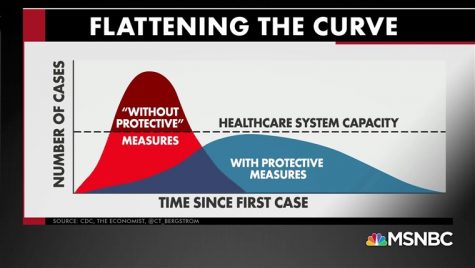Staying Safe and Resilient During a Pandemic

May 14, 2020
As the school year comes to a close, and summer break sets in, it becomes more and more tempting to take advantage of the nice weather and gather in large groups once again. However, it is still important to remember that due to the coronavirus spread, it is still necessary to social distance. While this does not mean people cannot go outside at all, it does mean that gathering in la rge groups, not wearing masks, and not maintaining 6 feet of distance between other people should be avoided.
that gathering in la rge groups, not wearing masks, and not maintaining 6 feet of distance between other people should be avoided.
These measures are not just for your own safety, but for the safety of the community around you. If someone is infected with the virus, they could unknowingly pass it on to other people. While the passing on of viruses is not an unusual feat, too many severe cases overwhelm the present health system in place. This means that supplies like ventilators and open beds would become filled quickly, and personal protective equipment (or P.P.E.) for the doctors and nurses caring for those infected will be used quicker than they can be obtained. Supplies are already strained as it is, making the protocols for flattening the curve a necessity for saving lives.
Another more recent issue the virus has presented has been the onset of a Kawasaki-like syndrome in children who may have had COVID-19 (though some may present the syndrome without a positive test result for COVID). It has been aptly named Pediatric Multi-System Inflammatory Syndrome, and while it is rare, it provides even more motivation to practice social distancing in order to protect the people within communities. The syndrome itself does not necessarily pose as large of a threat toward the respiratory systems, (as one might expect, given its associations with th e coronavirus). Instead, pressing health issues surrounding the syndrome can involve gastrointestinal symptoms and even cardiac inflammation. There is limited information on the long-term effects of Pediatric Multi-System Inflammatory Syndrome.
e coronavirus). Instead, pressing health issues surrounding the syndrome can involve gastrointestinal symptoms and even cardiac inflammation. There is limited information on the long-term effects of Pediatric Multi-System Inflammatory Syndrome.
We are currently living in a time of crisis. There is no road map for a situation like this, but that does not mean that the situation is entirely hopeless. The medical system is one that is constantly evolving for the sake of the changing world. Historically, things like hand washing and associations between poor health and poor living conditions weren’t always blatantly obvious. It is in situations like these, in the trials and difficulties, That the health care system is given the opportunity to rise and learn from possible mistakes made. And we, as a community, must learn to band together even if not physically. As Helen Keller once said, “The true test of a character is to face hard conditions with the determination to make them better.”
